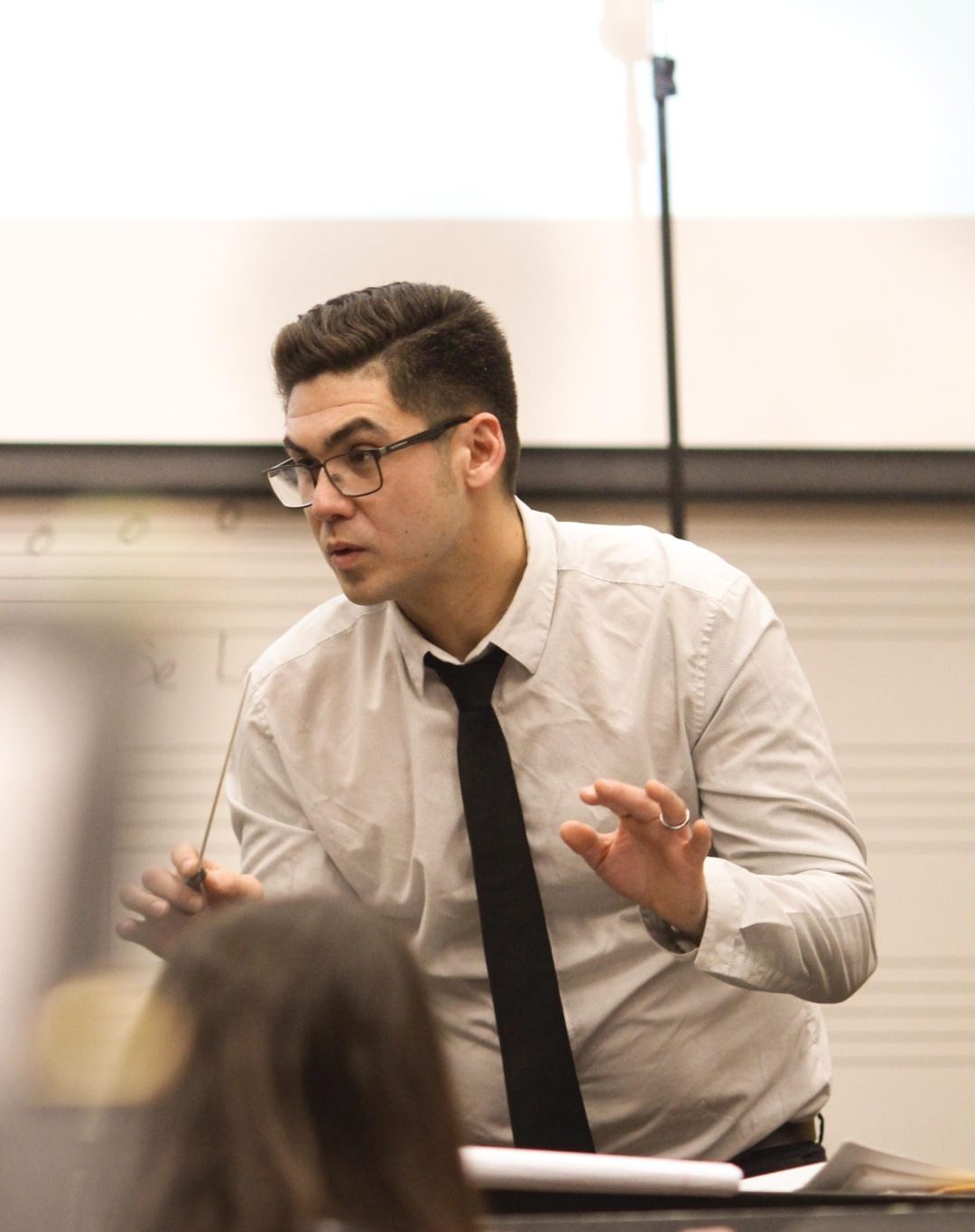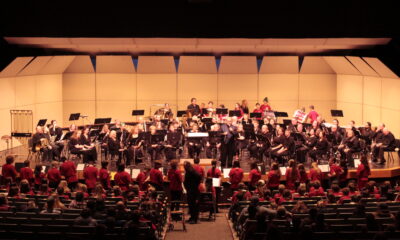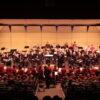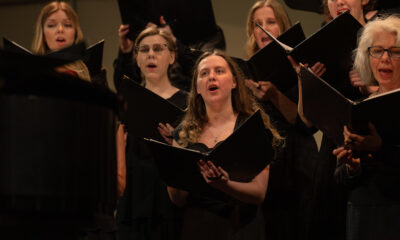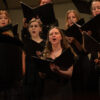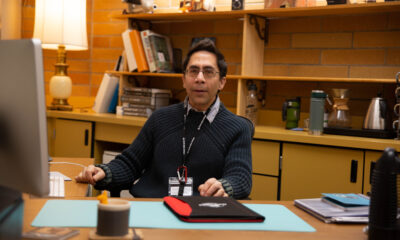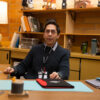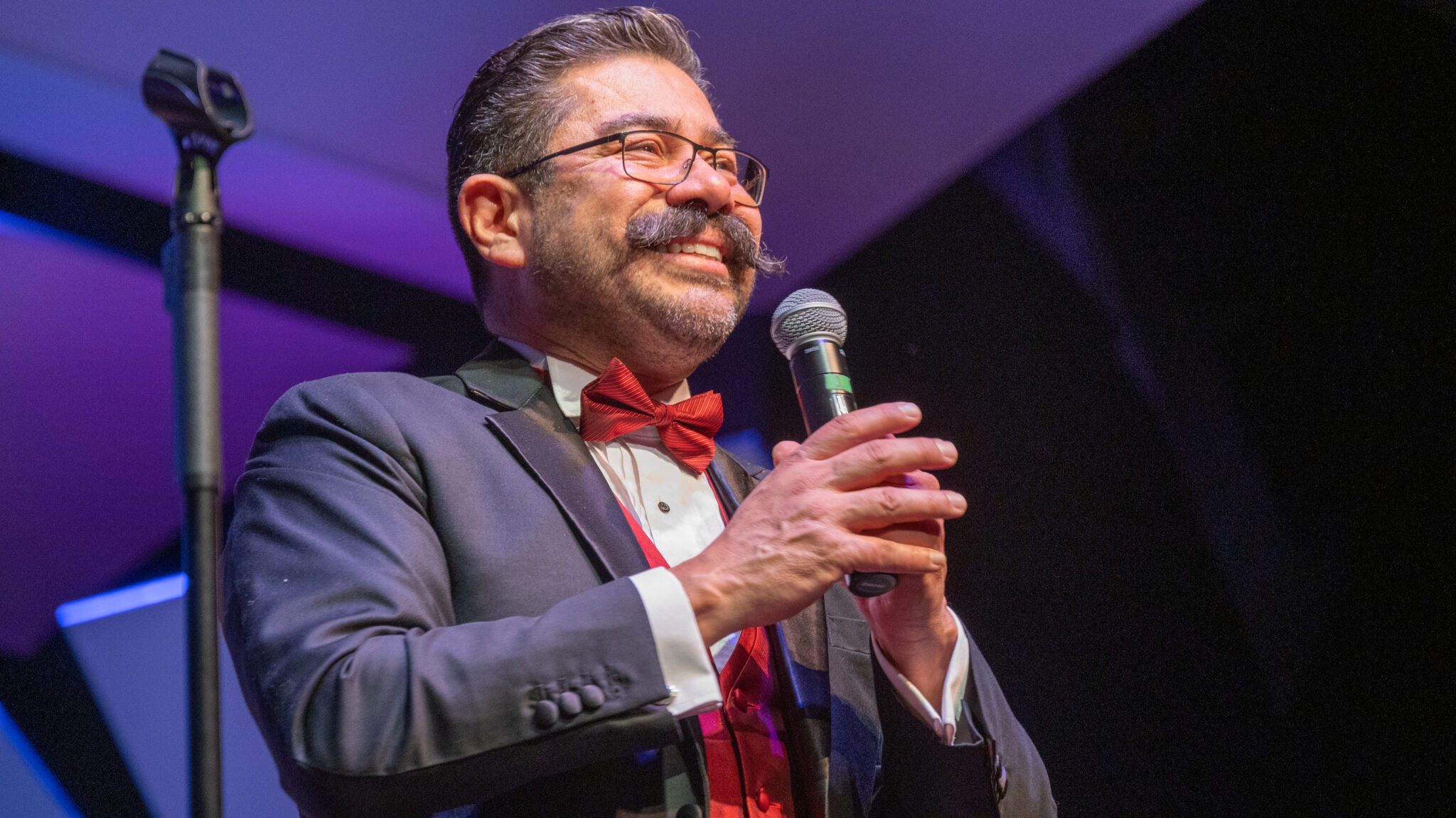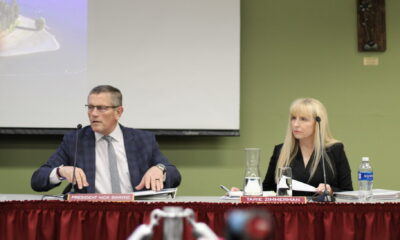Bryan Hannaford, assistant music professor and director
of bands, began working at NIC in 2017. Hannaford holds a Master of Music Education from Case Western Reserve University along with a Master of Music in Saxophone Performance from Cleveland State University.
We talked with Hannaford about his career, time at NIC
and his general advice for music students.
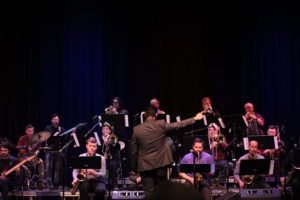
Bryan Hannaford conducting the NIC Jazz Ensemble during JazzNIC Festival Concert on Feb. 4. “I love music that has a meaning and that can touch you that way,” Hannaford said. Photo by Hannah Neff.
Why did you decide to become a music professor?
I remember hanging out with professors during office hours and really enjoying being a college music student. I went to grad school in hopes of one day being a professor. I became a music professor in 2015 working at Notre Dame College and John Carroll University in Cleveland, Ohio. However, I began my teaching career in 2009 as an elementary music teacher. I spent four years teaching in a public school system where I eventually became the high school band director in that district. I remember seeing professors depicted in movies, and always thinking that would be so cool, and guess what? It is super cool.
What have you accomplished at NIC and what do you hope to accomplish in the future?
Many successful performances with
our students and our community members that participate in our ensembles. In our future, I’m hoping to have more students attend NIC for music and I look forward to seeing
our graduates be successful working in the field of music, music performance and music education.
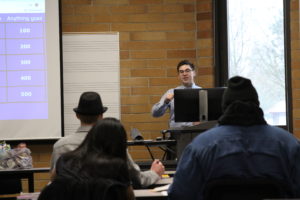
Bryan Hannaford teaching Introduction to Music on February 6. “I want to be the person people are coming to and wanting to talk about their lives,” Hannaford said. Photo by Hannah Neff.
Would you say music students should try to become the most skillful or develop their own style to stand out from the competition?
I tell musicians this all the time. What is the requirement for being a professional musician? Nothing, but if you want to have a career in music I suggest at least taking music theory and lessons on your instrument, which you can do here at NIC. Some people don’t have the desire to study music in college and go this academic route. Maybe you don’t want to be a music teacher or opera singer, but you want to produce records or be an audio engineer. You’ll still need to work with highly trained musicians and knowing the lingo or understanding instrumentation is important, and a good place to learn about this side of music is music theory and working one-on-one with a private instructor on your instrument.
What was the first instrument you learned how to play and when?
My first instrument was the guitar. My parents got me a guitar for Christmas during eighth-grade. I had asked for one for years, and finally I got one.
What advice would you give to music students at NIC?
Schedule in practice time. Don’t just sit around during the day in between classes. You need to find the time to put in your individual work. As an undergraduate student at Fresno State majoring in music, I worked at Starbucks around 25 hours a week, and I made sure that I practiced over 20 hours a week outside of ensembles. If you have a class at 10 a.m. and then another at 1 p.m. get in the practice room.
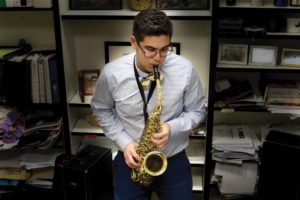
“They gave me a saxophone and that changed my life,” Hannaford said. “I was able to be creative every day so maybe that was the thing I was looking for.” Photo by Hannah Neff.
In your experience, what do music students seem to have the most trouble with?
Music students have the same struggles as any student will have. Relationship problems, financial problems, and crushing self-doubt, etc. What pulls people through? Being at rehearsal with like-minded people. Musicians seem to thrive on this shared endeavor to make art. I think young college music students might struggle with the challenges of the music curriculum. In some cases, we have very talented performers that might not have a good basis in music theory or notation. Students may get frustrated by the rules of counterpoint, but the thing that pulls them through is the social connections with your private instructor, with your ensemble director and with your friends in the ensemble.
How are you handling class changes during this pandemic?
I was teaching online and hybrid Introduction to Music which will not change too much. I’m also teaching video saxophone lessons, but the online ensembles are a big change. We are starting out slow doing a few projects to click tracks, but the real shift as a director is knowing I won’t be conducting any concerts until November. The school closing came one week before our March concert where we were set to perform some amazing pieces of music. Instead of performing that music, I’m hoping to create a few virtual ensemble videos by the end of the semester, but that’s going to take some time working on Adobe Premiere Pro instead of studying the score.
Would you say that the music industry has changed since you
came to NIC?
I began working at NIC in 2017 so things haven’t changed too drastically. We all know the music industry is always changing. Right now we are in this digital streaming world of music, but who knows what is going to happen next.
